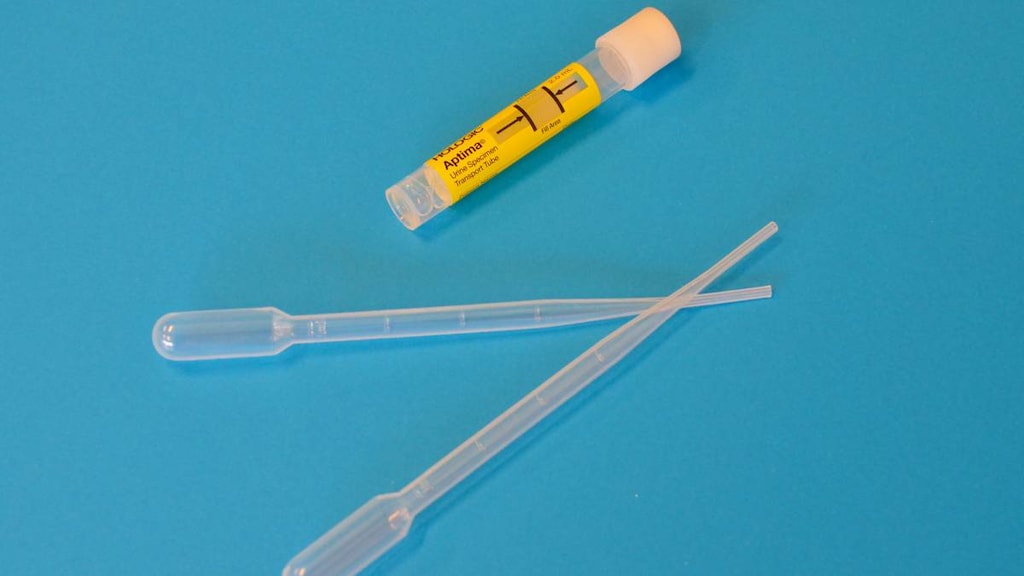How long does a urinary tract infection (UTI) last?

For minor, uncomplicated urinary tract infections (UTIs) treated with antibiotics, some research suggests that on average, patients’ symptoms resolve completely in about three and a half days. These uncomplicated infections tend to be simple bladder infections, the most common type of UTI, in otherwise healthy women.
For more severe infections, such as kidney infection, it may take about a week or more to resolve symptoms.
It is possible that a UTI will resolve untreated (without antibiotics), but symptoms are likely to last longer in the absence of treatment.
One study found that patients who didn’t take antibiotics took about four more days to recover fully compared to patients who took antibiotics. This “wait and see” approach without antibiotics is sometimes recommended to patients diagnosed with a minor, uncomplicated UTI that may resolve on its own.
A few factors may increase the length of time UTI symptoms last:
- Not taking antibiotics
- A history of UTIs
- More severe symptoms early on
- Antibiotic resistance (when bacteria responsible for the infection is resistant to antibiotic treatment)
How do I know a urinary tract infection has not gone?
UTI symptoms can range from mild to more severe. A UTI may not be resolved if any of these symptoms persist:
- Pain or burning while urinating
- Persistent urge to urinate even when bladder is empty
- Cloudy or foul-smelling urine
- Pressure or pain in lower abdomen
- Blood in urine
- Fever, tiredness or shakiness
- Pain in your back or side below the ribs
In rare cases, an untreated UTI can spread to the kidneys. A kidney infection may cause:
- Frequent, painful urination
- Upper back, side and groin pain
- High fever
- Chills
- Nausea
- Vomiting
Kidney infection is a serious condition and requires immediate medical attention. It takes longer to fully resolve compared to a lower UTI.
Antibiotics and symptom relief
Symptoms of a UTI usually begin to go away within 24 to 48 hours of starting treatment with antibiotics, but it’s important to finish the entire course of treatment. Not doing so can increase the likelihood that the infection will return and be harder to treat.
Patients who are diagnosed with a UTI will likely be prescribed a course of antibiotics. The preferred treatment options for most UTIs include:
- Nitrofurantoin
- Trimethoprim/sulfamethoxazole
- Fosfomycin
The antibiotics will usually be prescribed in a three- or five-day course for uncomplicated infections.
Complicated UTIs may require longer treatment, often for 7 or 14 days. A UTI is considered complicated when it occurs in:
- Men
- Pregnant women
- People with a urinary tract abnormality or a compromised immune system
Recurrent infections that don’t respond to antibiotics may also be complicated.
Article references
- François M, Clais B, Blanchon T, Souty C, Hanslik T, Rossignol L. Factors associated with the duration of symptoms in adult women with suspected cystitis in primary care. PLOS ONE. 2018 Jul 25;13(7):e0201057. https://doi.org/10.1371/journal.pone.0201057.
- MedlinePlus. Urinary tract infection - adults. June 28, 2018. Available at: https://medlineplus.gov/ency/article/000521.htm. [Accessed October 2, 2020].
- Butler CC, Francis N, Thomas-Jones E, et al. Variations in presentation, management, and patient outcomes of urinary tract infection: a prospective four-country primary care observational cohort study. Br J Gen Pract. 2017;67(665):e830-e841. https://doi.org/10.3399/bjgp17X693641.
- Hooton TM. Uncomplicated Urinary Tract Infection. March 15, 2012. N Engl J Med 2012;366:1028-1037. https://www.nejm.org/doi/full/10.1056/NEJMcp1104429.
- Urology Care Foundation. What is a Urinary Tract Infection (UTI) in Adults? April 2019. Available at: https://www.urologyhealth.org/urologic-conditions/urinary-tract-infections-in-adults. [Accessed September 9, 2020].
- Medina M, Castillo-Pino E. An introduction to the epidemiology and burden of urinary tract infections. Ther Adv Urol. 2019 May 2;11:1756287219832172. https://dx.doi.org/10.1177%2F1756287219832172.
- American Urological Association (AUA). Medical Student Curriculum: Adult UTI. April 2020.Available at: http://www.auanet.org/education/auauniversity/for-medical-students/medical-students-curriculum/medical-student-curriculum/adult-uti. [Accessed September 9, 2020].
- American Urological Association (AUA). Recurrent Uncomplicated Urinary Tract Infections in Women: AUA/CUA/SUFU Guideline. 2019. Available at: https://www.auanet.org/guidelines/recurrent-uti. [Accessed September 9, 2020].




